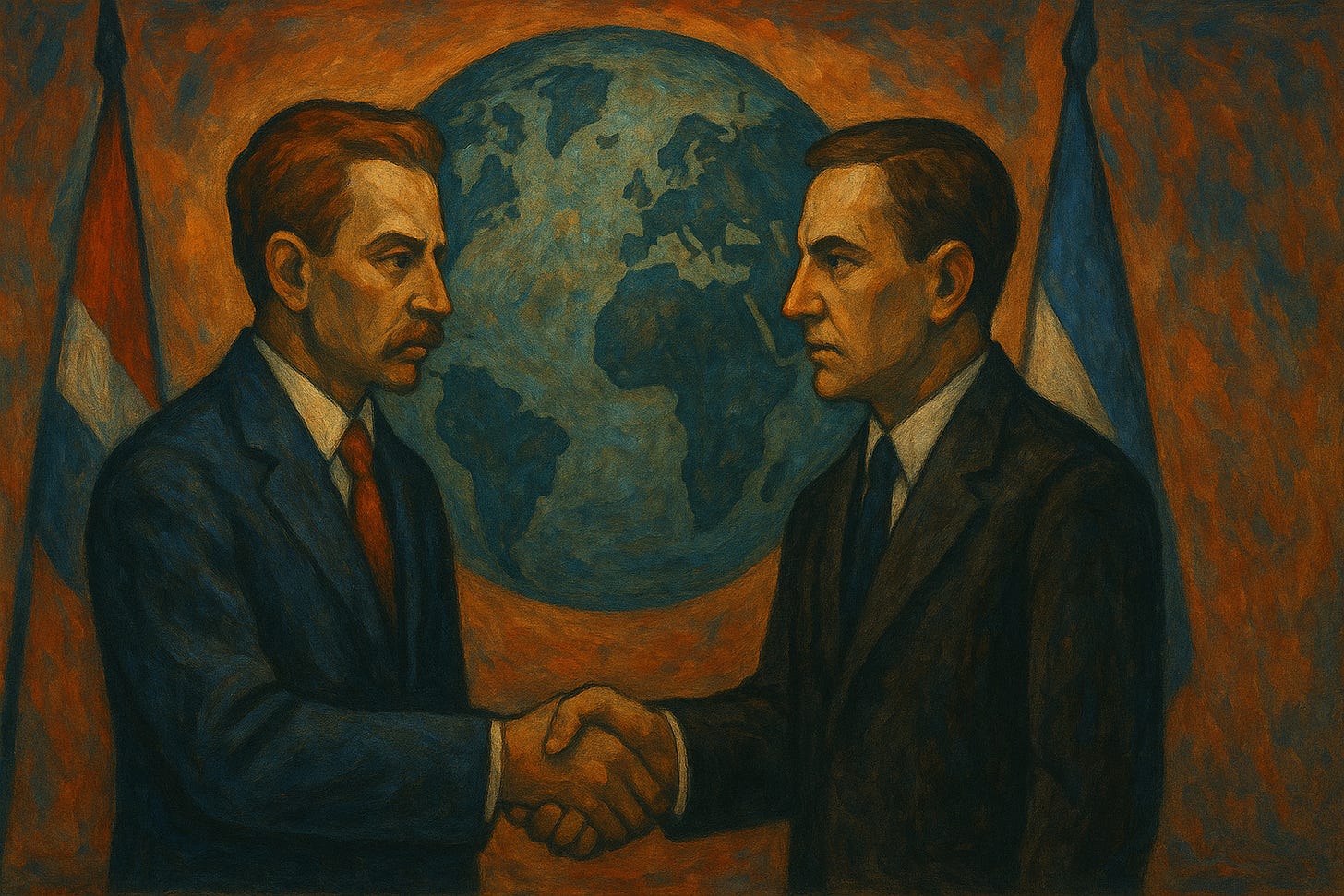Sober Strength of Diplomacy: Rilke on Irony, Seriousness, and the Art of Global Engagement
Seek out the depths of things: irony will never reach down there – and if in so doing you come up against something truly great, inquire whether this way of relating to things originates in a necessary part of your being."
In this passage from the second of his Letters to a Young Poet, Rainer Maria Rilke offers a powerful meditation on the role of irony in creative and, by extension, human life. Written in 1903 to a young aspiring poet, these words hold surprising resonance for the world of global affairs and diplomacy, a realm often perceived as driven by strategic calculation rather than the deep wellsprings of human character.
Rilke cautions against letting irony rule us, particularly in "uncreative moments." He sees it as a tool, useful in its place, but ultimately incapable of grasping life's profoundest truths. Irony, with its detachment and inherent skepticism, can be a shield against vulnerability, a way of navigating the world without truly engaging with its depths. But for Rilke, true greatness, whether in art or in life, demands a different approach: a willingness to seek the depths, to inquire into the "necessary part of your being" from which genuine connection and creation spring.
How does this apply to the world stage? We often think of diplomacy as a dance of carefully constructed statements, a field where irony and strategic ambiguity might seem advantageous. But consider the moments when diplomacy truly succeeds: when seemingly intractable conflicts are resolved, when nations find common ground, when leaders inspire genuine trust. Are these the fruits of irony and detachment, or do they emerge from a deeper place?
Think of the late Nelson Mandela (18 July 1918 – 5 December 2013), whose long walk to freedom culminated not in bitterness or cynicism, but in a profound capacity for reconciliation. His ability to move a nation from the precipice of civil war to a fragile peace was rooted not in irony, but in a deep, almost spiritual commitment to the humanity of his adversaries. He sought the depths of the South African situation, and in doing so, he tapped into a wellspring of moral authority that transcended political calculation.
Mandela's strength was not in strategic detachment, but in a profound seriousness of purpose, a willingness to engage with the painful truths of his nation's history and to build a future based on empathy and understanding. He understood that true leadership requires a connection to something deeper than political expediency, a connection to the "necessary part of your being" that Rilke speaks of.
In a world increasingly characterized by cynicism and distrust, Rilke's words serve as a potent reminder. The diplomat who operates solely from a place of irony, who remains detached from the human realities of conflict, will ultimately be limited in their capacity to build lasting peace. True diplomacy, like true art, requires a willingness to engage with the depths, to seek out the common humanity that lies beneath the surface of political maneuvering.
To "seek out the depths of things" in the context of global affairs means to move beyond superficial pronouncements and engage with the underlying causes of conflict: the historical grievances, the economic disparities, the cultural misunderstandings that fuel division. It requires a willingness to listen deeply, to understand the perspectives of others without sacrificing one's own integrity, and to build bridges based on mutual respect rather than strategic advantage.
Rilke's challenge to inquire whether our way of relating to things originates in a "necessary part of your being" is particularly relevant for those who navigate the complex world of international relations. It is a call to self-awareness, a reminder that our actions on the world stage are ultimately a reflection of our inner selves. The diplomat who lacks a firm grounding in their own values, who is driven by ego or expediency, will be ill-equipped to build a more just and peaceful world.
In our age of instant communication and rapid-fire political cycles, the temptation to rely on irony and detachment is ever-present. But Rilke's words remind us that true greatness, in diplomacy as in art, requires a different path: a path that leads us to the depths of things, to the "necessary part of our being" from which genuine connection, understanding, and lasting peace can emerge. The most enduring acts of diplomacy, it turns out, may just be the echoes of a conversation one has dared to have with their own soul.





